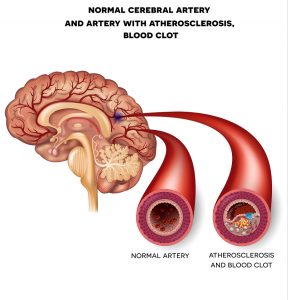A Jan. 8, 2020 study stated that cutting out bad lifestyle habits increases life expectancy. It was a publication in the British Medical Journal by the Harvard T.H. Chan School of Public Health. The senior author of the study was Frank Hu, chair of the Department of Nutrition at Harvard Chan School. The researchers looked at data collected from a large group of males and females that had been accumulated for 34 years. They found that a 50-year-old male or female who did not change their lifestyle habits had another 25.5 years to live for males and another 29 years to live for females.
Five bad lifestyles and life expectancy
The 5 bad lifestyle habits were smoking, a body mass index above 25.0, excessive alcohol intake, less than 30 minutes of exercise per day and an unhealthy diet.
When people cut out all of those risky lifestyles, 50-year-old men and women had a life expectancy of 37.6 years for men and 43.1 years for women. This was an addition of 12 years of healthy life for men compared to controls who did not change their lifestyles. With regard to women there was an addition of 14 years of life compared to controls.
Diseases that kill prematurely
The research team wanted to know what diseases caused the most reduction in life expectancy when people did not change their bad lifestyle habits. Men and women who cut out all negative lifestyle habits were 82% less likely to die from cardiovascular disease. They also were 65% less likely to die from cancer. Bad lifestyles caused the two major diseases, cardiovascular disease (heart attack and strokes) and cancer, which increased overall mortality. The overall study time was about 30 years. The third major disease that can cost lives is diabetes. In addition, the research team identified chronic diseases as being another potential cause of people dying prematurely.
Additional life expectancy
When life expectancies were broken down according to diseases, the following was noticed.
For men:
When cancer free When free of heart issues Without diabetes
6 more years 9 more years 10 more years
For women:
When cancer free When free of heart issues Without diabetes
8 more years 10 more years 12 more years
Dr. Frank Hu, who chairs the department of nutrition at Harvard T.H. Chan School of Public Health said: ”We found that following a healthy lifestyle can substantially extend the years a person lives disease-free”. Those who do not shed their bad lifestyle habits will come down with one or more of the mentioned diseases and die prematurely. Others who cut out all their bad lifestyle choices live substantially longer.
Diseases caused by poor lifestyle habits
It is important to review the diseases that shorten life expectancy due to having poor lifestyle habits.
Cardiovascular disease
Smoking, lack of regular exercise and poor eating habits result in being overweight or developing obesity. All of these are risks with LDL cholesterol elevation and HDL cholesterol lowering that leads to heart attacks and strokes. Here is a study that shows how life is shortened after a heart attack.
It is clear from this how important it is to give up all of the poor lifestyle habits to avoid this from happening.
Cancer
90% of lung cancers are the result of cigarette smoking.
Heavy drinking can contribute and also lead to cancer of the liver, esophageal cancer, cancer of mouth and throat and cancer of the breasts in women. In addition, cancer of the colon and rectum are also caused by consuming too much alcohol in both sexes.
Diabetes
There are a variety of risk factors causing diabetes. Obesity, a lack of exercise, a bad diet with too much carbohydrates and the aging process are what contributes to the development of type 2 diabetes.
We see again that it is largely lifestyle issues that drive the onset of this disease. People who have developed diabetes need to control their blood sugar very closely to avoid complications of diabetes. This includes making healthier choices.
Otherwise complications of diabetes are diabetic nephropathy, blindness from macular degeneration of the cornea, heart attacks, stroke and diabetic neuropathy. In addition, vascular complications also include artery occlusions in the lower extremities with frequent foot or below knee amputations.
Chronic diseases
Often chronic diseases develop when there is generalized development of inflammation. COPD, chronic kidney disease and arthritis are examples of such conditions. In addition, Alzheimer’s disease, arthritis, asthma, Crohn’s disease, cystic fibrosis and diabetes belong into this category. All of these chronic diseases have in common that cytokines produce inflammation in the body. This keeps the chronic disease going and makes it more difficult to cure. When the person with a chronic disease makes poor lifestyle choices, the inflammation just becomes more chronic.
Smoking is one of the factors that makes chronic inflammation more chronic. Having a body mass index above 25.0 (being overweight) and above 30.0 (obesity) also creates more inflammation in the body. Excessive alcohol intake damages body cells and releases free radicals. These in turn cause inflammation and make the chronic disease more difficult to treat. An unhealthy diet tends to raise the bad LDL cholesterol, introduces pesticides and other chemicals into the system and adds to the chronic inflammation. Finally, a lack of exercise is not contributing to a healthy circulation and lowers the protective HDL cholesterol, paving the way for heart attacks and strokes.
Conclusion
Bad lifestyle habits are what causes us to get illnesses and die prematurely. Functional medicine and anti-aging medicine are at the frontier of modern medicine. These specialties are teaching us how to stay well and age gracefully. For decades conventional medicine has treated only symptoms, but not the causes of diseases. But this has not changed the mortality rates of heart attacks and cancer. Smoking, a body mass index above 25.0, excessive alcohol intake, exercising less than 30 minutes of exercise per day and an unhealthy diet are causes that make us sick. These bad lifestyle factors cause chronic inflammation in our system. They are the real cause of heart attacks, strokes, cancer and diabetes, the major killer diseases that prevent healthy aging.
Facing bad lifestyle habits
Bad lifestyle habits cause chronic inflammation. T he C-reactive protein blood test can measure the degree of inflammation that is present. A fasting insulin level can detect whether a person is in danger of developing diabetes and improved lifestyle habits can prevent this from happening. Men can add 12 years and women 14 years of healthy life by eliminating bad lifestyle habits. By eliminating chronic inflammation our new life expectancy, which is 79 to 80 years, now can reach 92 to 94 years. It is up to you how healthy you stay and whether or not you age gracefully.







